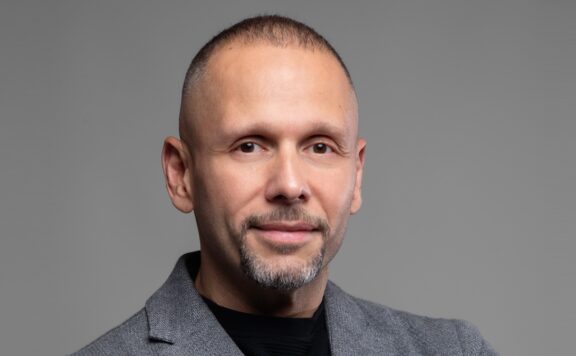Zoomaal, the Arab world’s newest crowdfunding platform was launched in July this year. The platform today provides entrepreneurs, artists, and socially-minded doers a chance to fund their projects through crowdsourced donation.
The crowdfunding model on which Zoomaal is based upon, was first introduced by Kickstarter in the US. Zoomaal offers a place for people to find funding for very specific products or projects across a variety of categories, through a large amount of small investments. Each project offers a series of rewards or perks for different support levels to give backers an incentive to get involved. If a project doesn’t reach their requested funding level within their set time limit, the money is reimbursed to backers.
My Startup World spoke to Abdallah Absi, the CEO of Zoomaal to find out more.
What is Zoomaal all about? Why was the service launched?
Zoomaal is the first crowdfunding platform of the Arab world. It aims to support creative projects that end up dying because of no-funding and R&D spending. I believe Zoomaal could be the long awaited spark that encourages innovation in a region filled with pessimism, hate, and negativity.
In which countries is Zoomaal available in?
Zoomaal is available in all the Arab world, most specifically: Lebanon, KSA, Jordan, UAE and Egypt.
How do you see the entrepreneurial ecosystem in the Middle East and Africa region?
The Middle East is booming in entrepreneurship. You could see entrepreneurship initiatives everywhere and the number and quality of business ideas are getting better the more incubators and accelerators pop. One of the challenges of entrepreneurs was funding, and I am glad to see that international venture capital funds are getting more involved in funding regional startups. Zoomaal also plays a significant role in covering this funding gap.
What according to you is needed for startups in the MEA region in order to be successful?
More guidance is needed for entrepreneurs and startups to be successful. In addition, I believe accelerators are also necessary. Crowdfunding can also be useful if someone has a very good business idea, but does not have the capability of funding it to fruition. We follow a reward-based crowdfunding model, so the funders are not really expecting financial returns, they are more giving the funds to support and be involved in the project.
How did you arrive on the idea behind Zoomaal?
I have personally experienced funding difficulties in my previous ventures. As soon as I heard about the concept of crowdfunding around 4 years ago I was excited about it, but never had the chance to work on it because of other commitments to previous startups. Last year, when I decided to resign from managing Rifflex – a startup I founded in 2009, crowdfunding was booming in the US and around the world. Yet, there was no crowdfunding platform in the Arab world. It was the perfect opportunity that I had to seize by then.
What is the primary source of revenue for Zoomaal?
We take a 5% fee from only successfully funded projects on Zoomaal.
Did you encounter any hurdles while setting up the company?
Absolutely, it’s been crazy. If you think being an entrepreneur is easy and free, you’re wrong. We’ve faced many issues with payments, acquiring projects, crowdfunding awarness and others. However, whenever there is a problem or a struggle, I strongly believe in the snowball effect. There is always one tiny solution that is the spark to amazing stuff. If you think about all challenges this way, they become a piece of cake.
Apart from being involved in Zoomaal, are you also involved in other business / initiatives / companies / startups?
Startups are my life. I do have many business ideas in mind but all of them are stopped for Zoomaal. We were able to prove the concept and now we are looking to scale more aggressively. I think a lot about my country and region, and I dream that the Arab world becomes a center of creativity and innovation.
All my future plans are aligned along this goal. I believe that nothing should stop in the face of innovation, even the greatest political conflicts in the region. We should look at this region as an opportunity to come up with amazing solutions that deal with conflict resolution, knowledge sharing, job search – who in the world needs these more than us?
What is your advice to other entrepreneurs in the process of setting up shop in the Middle East?
Great investors? Not really! I have tried to reach the same investors hundreds of times but it never worked. Now, I have two small pointers for entrepreneurs if they are looking for investment. I don’t care what your business is, whether you have a business plan or not, whether you have 1 million users or 42.
Whoever is the investor you are approaching, make sure they are a smart investor that isn’t there just for the money. I was able to get four venture capital funds to fund Zoomaal because they saw strategic value in it for them to get early access to quality projects that get on Zoomaal. And second, use the greatest tool for entrepreneurs: LinkedIn. I’ve met with hundreds of investors and entrepreneurs in the world through this amazing tool. Last year was my first ever visit to Istanbul, and I had no connections there whatsoever. Nevertheless, I had 20+ meetings with top investors and entrepreneurs.
What factors according to you should they take into consideration prior to starting their own business?
There are many, but I will focus on only one: Perseverance. Entrepreneurship is a long road, full of rocks and bananas, where wolves and monkeys are behind you non-stop looking to have a snatch from you. To be an entrepreneur you have to run, day and night, jump, change directions, fall and stand up again.
You will miss your family and girlfriends, work 25 hours a day, and then get hit by an investor who wants his money back, and users who are not satisfied. Yes, it’s a ‘hell-yeah’ of an amazing experience, but if you’re not determined to go all the way no matter what, you won’t be successful.





